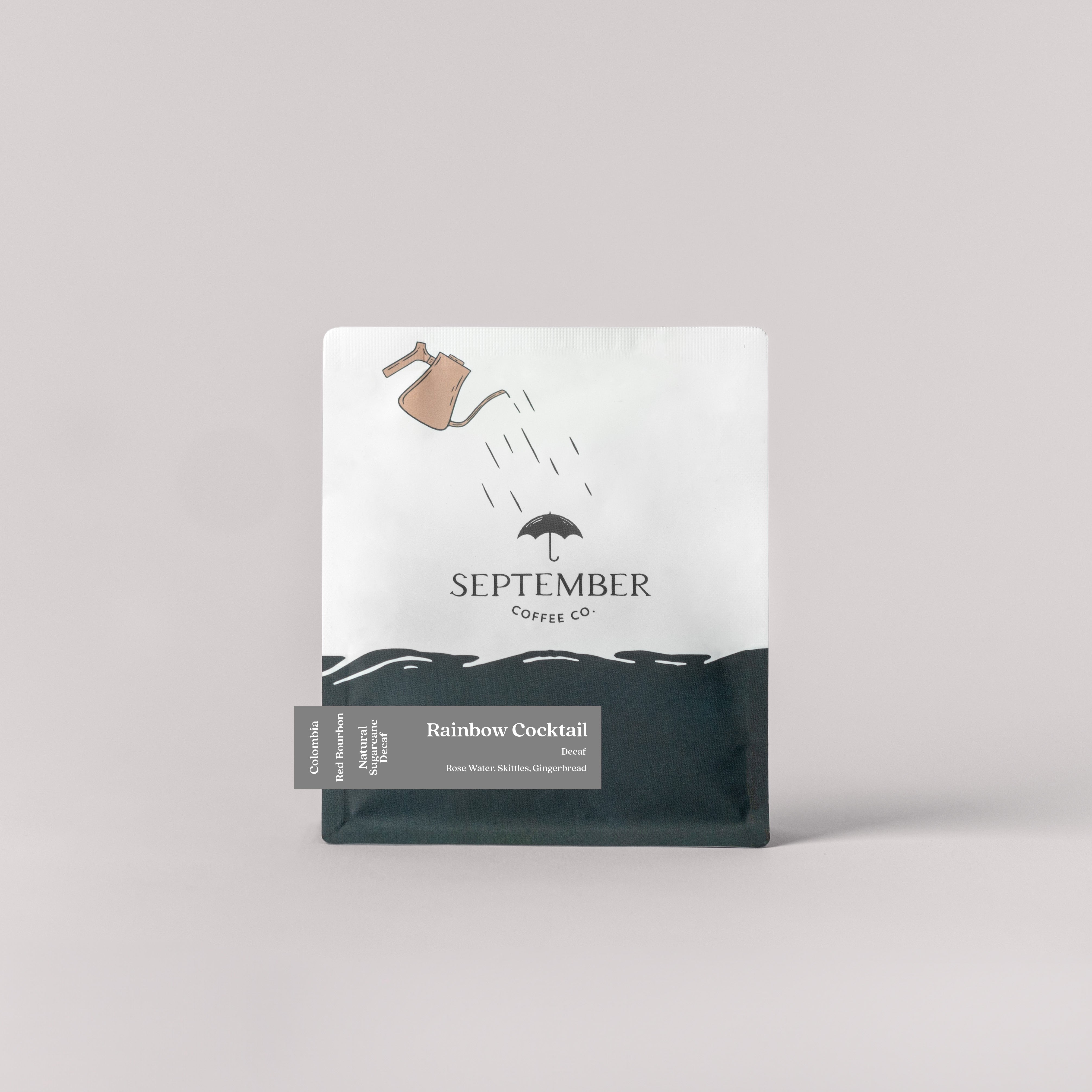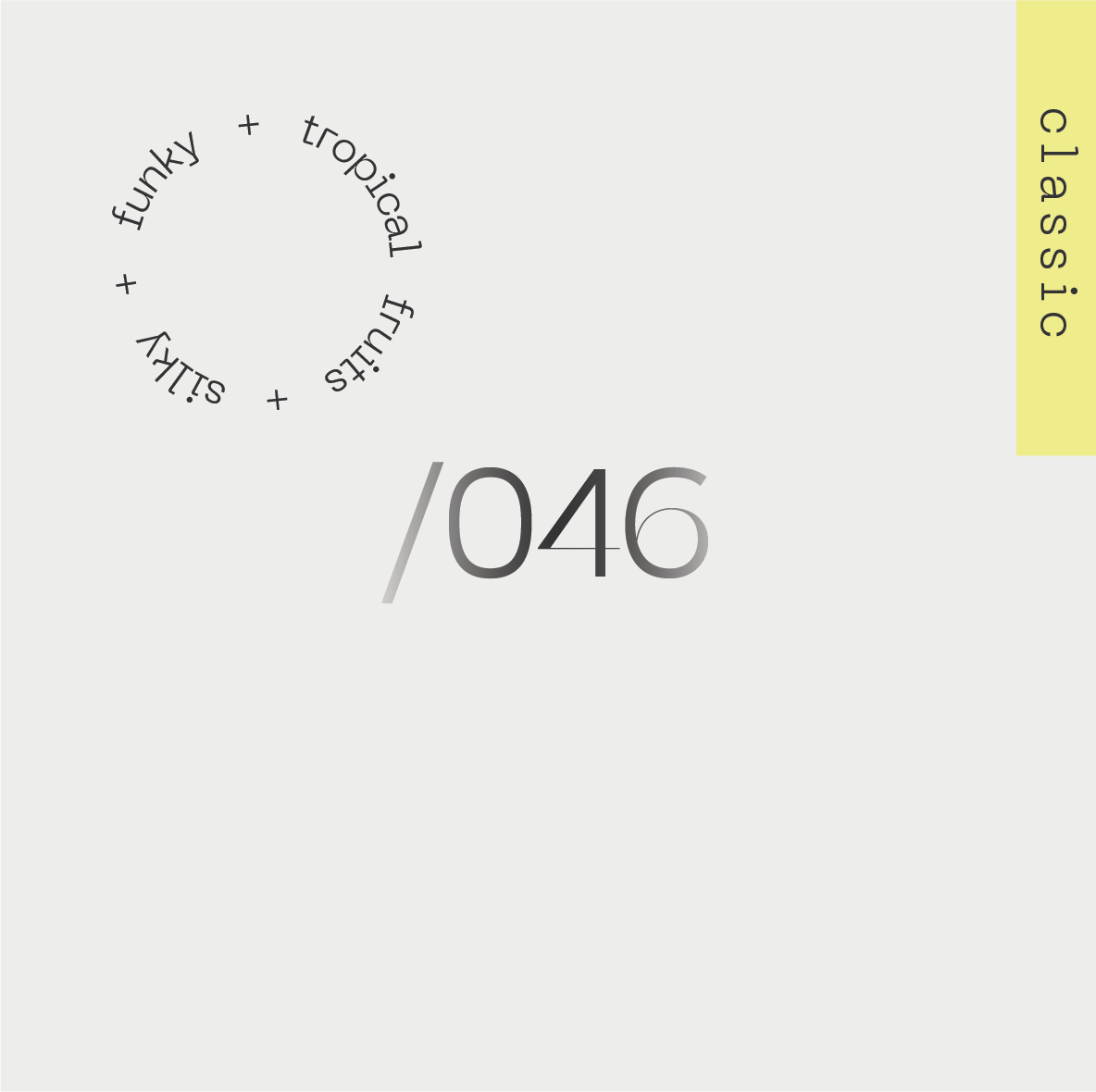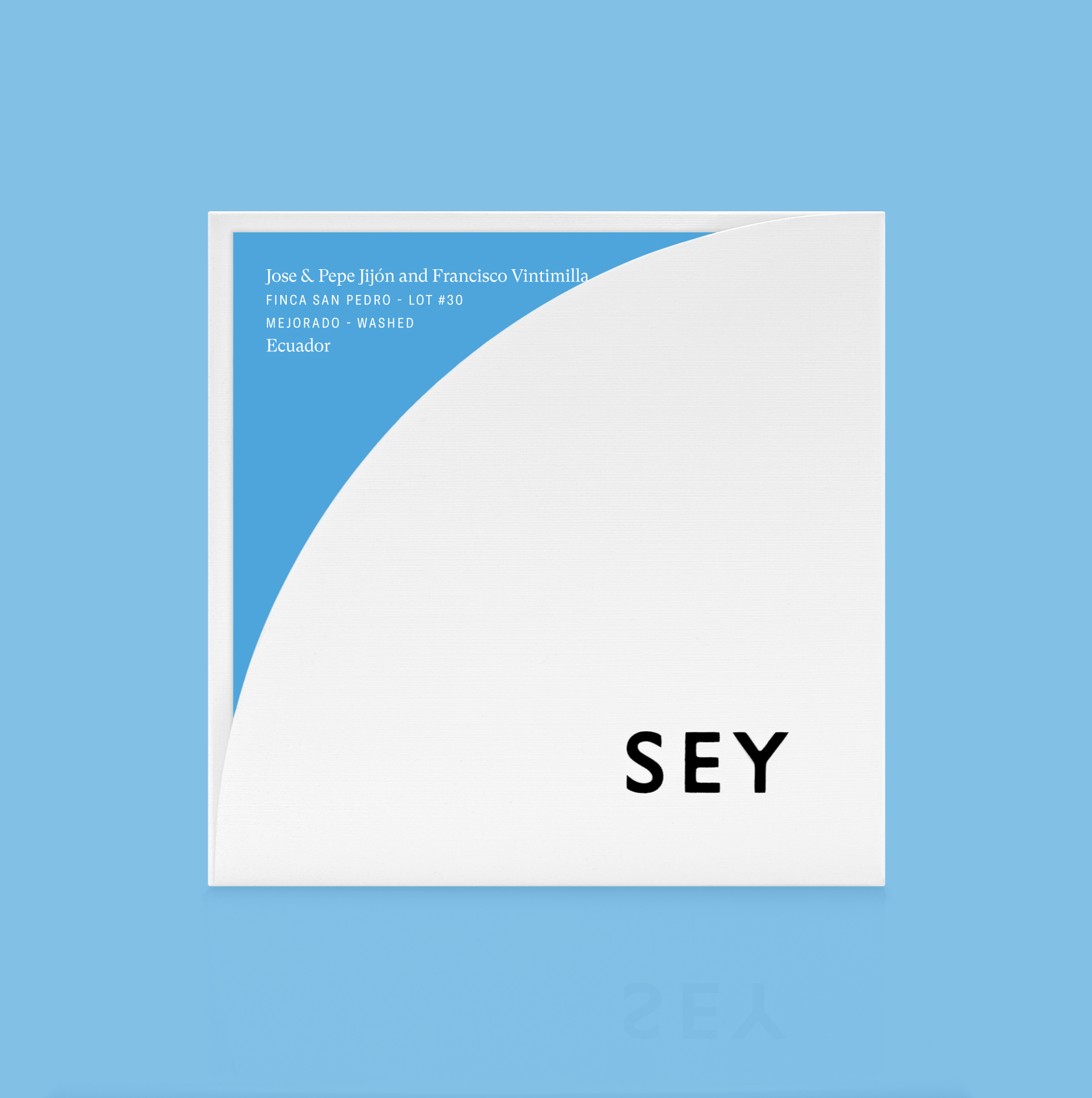
Rainbow Cocktail - Colombia Decaf
Description
This is our fourth harvest working with Wilton Benitez and the fourth time we've had his decaf. This decaf is truly special, and scored competitively against many of our caffeinated coffees. The profile is sweet, floral, fruit forward, and bright. 26+ years being a coffee grower. 16+ years of experience with specialty coffee. Roaster. Q-grader processor. Non-certified tester but with a lifetime of experience in the tasting process. Paraíso 92 is a family farm that uses highly innovative farming systems such as terraces, drip irrigation, shading and laboratory nutrition count aimed to produce a unique coffee. Paraiso 92 has a processing plant, microbiology lab and quality lab. They are able to produce coffees through different processes such as washed, Natural, Honey and anaerobic coffees (single and twice fermentation). The use of bioreactors and specific microorganisms for controlled fermentation coupled with a constant control and monitoring of factors such as temperature, pH, brix degrees and electric conductivity make El Paraiso 92 ́s coffee to stand out from the rest and offer a value added like no other. All this allow the producer to have distinct, unique and standardized profiles and notes. After the coffee is sterilized, the cherry is fermented for 48 hours. During Cherry fermentation Wilton adds Yeast (Saccharomyces pastorianus). The cherry is pulped and further fermented for 68 hours. During cherry fermentation, natural grain juices are produced that are incorporated in the second fermentation after pulping. The coffee is then washed and dried for 48 hours at 38C. The coffee is then decaffeinated with cane sugar. Bourbon is the most famous of the Bourbon-descended varieties. It is a tall variety characterized by relatively low production, susceptibility to the major diseases, and excellent cup quality. French missionaries introduced Bourbon from Yemen to Bourbon Island (now La Réunion)—giving it the name it has today—in the early 1700s. Until the mid-19th century, Bourbon did not leave the island. But beginning in the mid-1800s, the variety spread to new parts of the world as the missionaries moved to establish footholds in Africa and the Americas. The Bourbon variety was introduced to Brazil around 1860, and from there rapidly spread north into other parts of South and Central America, where it is still cultivated today. Here it became mixed with other Bourbon-related varieties, introduced from India as well as Ethiopian landraces. Nowadays, there are many Bourbon-like varieties found in East Africa, but none exactly match the distinct Bourbon variety that can be found in Latin America. Today in Latin America, Bourbon itself has largely been replaced by varieties that descend from it (notably including Caturra, Catuai, and Mundo Novo), although Bourbon itself it is still cultivated in El Salvador, Guatemala, Honduras, and Peru.
Origin
Purchase
Similar Beans
Based on tasting notes and processing method

/046² Costa Rica — Dota
A Matter of Concrete

2025 Jose & Pepe Jijón And Francisco Vintimilla; Finca San Pedro, Lot #30 - Ecuador
Sey Coffee

353 Colombia | Coffee Beans
Uncle Ben's Coffee

359 Colombia | Coffee Beans
Uncle Ben's Coffee